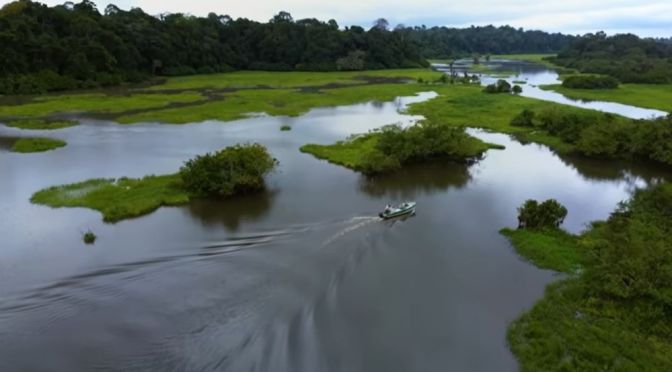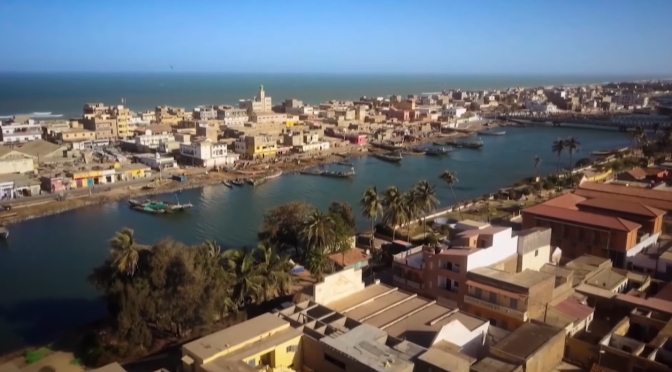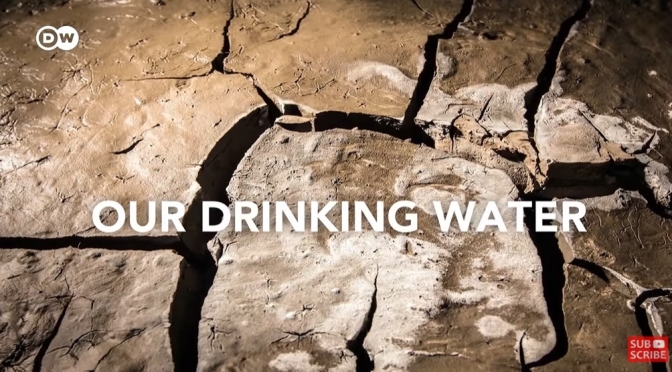On the island of Borneo, many forests have been cleared to make way for oil palm plantations or mining. That’s having a disastrous effect on nature. So the 100 Million Trees project aims to bring back the forests.
Category Archives: Documentaries
Healthy Living: Can The Aging Process Be Halted?
Can the aging process be reversed – or even halted, altogether? If we manage to decode this final mystery of our human biology, we might soon be able to eradicate age-related illnesses like cancer, dementia and heart problems. The race to invent the miracle pill is well underway.
Today, international researchers are getting astonishingly close to realizing humanity’s dream of immortality. The hunt for immortality gained traction with the discovery of Costa Rica’s so-called “Blue Zone,” by Luis Rosero-Bixby. In the “Blue Zone,” on the Nicoya Peninsular, he found a remarkable number of centenarians.
Here, male life expectancy is the highest in the world. Their healthy lifestyle is one factor, but the promise of longevity is probably also because their telomeres – sections of DNA found at the end of chromosomes – are longer than those of the average person. It’s a field of research currently being explored by Maria Blasco in Madrid.
But this is just one of many possible factors influencing the process of aging. Senescent cells may also play a key role. Also known as “zombie cells”, these attack our body in old age and flood it with alarm signals until, at some point, we collapse under their weight. That’s a theory proposed by another researcher in Spain, Manuel Serrano. A billion-dollar industry is already knocking impatiently at the lab doors.
The first to market the miracle pill is guaranteed incredible wealth. That’s why investors are sponsoring young bio-startups in Hong Kong. Keen not be left out, US Big Tech is vying for the world’s best scientists. Alex Zhavoronkov has secured a slice of that pie, with a cash injection of more than 250 million dollars for his company’s work on aging research. Whereas some pioneers’ visions burst like bubbles, others rush to get other, rather more dubious products onto the market. But their efficacy is now measurable.
The epigenetic clock devised by Steve Horvath can measure our biological age, regardless of our actual age in years. With his research on the thymus gland, California’s Greg Fahy managed to not only decelerate the aging process, but reverse it. His initial study on humans showed that a particular drug cocktail took an average two-and-a-half years off their age.
Young biohackers like Nina Khera from Boston want everyone to benefit from this research. Together with friends, she’s working on the “epigenetic clock for all”. But while we’re busy trying to counter the aging process and all the illnesses it entails, fundamental questions arise: Should we be messing with nature like this? Are we about to overwhelm the planet with more and more people? Criminal biologist Mark Benecke in Cologne says that these questions are coming far too late.
Rainforests Of Africa: The Protectors Of Gabon
Gabon’s soul lies hidden beneath a thick green mantle, the source of most of the Gabonese traditions, medicines, spirituality, and resources. A precious heritage that a small number of men and women protect.
We meet Kombo, a Babongo hunter, and Juste, who is in touch with the forest spirits. In human cultures in general, and perhaps particularly in Africa, the landscape is the first shrine of tradition.
From the sand dunes of Mauritania to the currents of River Senegal, to the Lions of the Beninese savannah to the spirits of the forests of Gabon, this series explores the origin, the nature and the survival of deep links between several populations in West Africa and their habitat.
Travels: History Of The Orient Express & Istanbul
Gavin Stamp retraces the route of the old Orient Express, from London, via Paris, Vienna, Budapest, Belgrade, Bucharest, to Istanbul, in search of the treasures of ‘Old Europe’. Stamp’s adventures on and off the train are punctuated by his candid, entertaining reflections on life, the world, and the strange and wonderful people he meets.
Celebrity Culture: History Of The Côte d’Azur, France
The Côte d’Azur stands for glamour and luxury, for film festivals and stars, for yachts and villas. The most famous personalities of the last century met here. The Côte owes its unique mythos to their loves and passions.
The Côte d’Azur boasts a breathtakingly gorgeous landscape. But its mythos is more than the sum of it beautiful parts. The whole world associates the narrow coastal strip on the French Mediterranean coast with sun, stars and scandals. In Saint Tropez, a former fishing town, a new and newly sensual art of living was popularized thanks to the young Brigitte Bardot.
On the eastern part of the coast, Oscar winner Grace Kelly conquered the principality of Monaco with her marriage to Prince Rainier. The matchmaker? The Greek shipowner Aristotle Onassis, who wanted to burnish the dwarf state’s image. One of the most glamorous film festivals in the world was established in Cannes. After that, it seemed everyone came to the Côte. At the Hôtel du Cap-Eden-Roc in Antibes, the paths of the famous crossed again and again.
For 150 years the hotel has been home to artists, queens and kings, divas and stars. Since 1969, the hotel has been owned by the German industrialist family Oetker. Maja Oetker describes her personal memories of the past 50 years. To this day, the Côte d’Azur has lost none of its appeal. It is more than just a place: it is an entire mythos.
Engineering: Sabah Al Ahmad Sea City, Kuwait
In this city almost every resident has their own beach access on a lagoon that leads directly into the sea. But constructing such a city meant overcoming tremendous engineering problems.
Sabah Al Ahmad Sea City is a city in Khiran Kuwait built with canals forming 200 kilometres (120 mi) of artificial shoreline. The city houses up to 250,000 residents.[1][2] The city was inaugurated in mid 2016.[3][4] The artificial islands that make up the area are unusual because they were built excavating large channels in desert land rather than using reclaimed land. The city is considered a pioneering project in the region due to its environmentally sustainable construction techniques.[5][6]
The first phase of the project was opened to the sea in 2004.[5] The multi-billion dollar development is within a 25 year construction period with ten phases.[1] Sabah Al Ahmad Sea City is the first urban area in Kuwait built entirely by the private sector.
Travel & Culture: Desert Peoples Of Mauritania (HD)
Mauritania, officially the Islamic Republic of Mauritania, is a sovereign state in Northwest Africa. It is bordered by the Atlantic Ocean to the west, Western Sahara to the north and northwest, Algeria to the northeast, Mali to the east and southeast, and Senegal to the southwest.
In human cultures in general, and perhaps particularly in Africa, the landscape is the first shrine of tradition. From the sand dunes of Mauritania to the currents of River Senegal, to the Lions of the Beninese savannah to the spirits of the forests of Gabon, this series explores the origin, the nature and the survival of deep links between several populations in West Africa and their habitat.
Each episode takes us to discover an emblematic landscape: the river (Senegal), the desert (Mauritania), the forest (Gabon) and the savannah (Benin). A compass of escape and meeting which rests on two main pillars: the spectacular character of the places, often classified with the UNESCO world heritage, and the charisma of the main characters who are transmitters of their respective traditions.
Views: American Arctic’s Disappearing Traditions
To Laureli Ivanoff, climate change is far from an abstract idea. As an Iñupiat writer living in the remote Alaskan town of Unalakleet, she’s seen firsthand the warming planet’s tangible impact on her culture’s food traditions, some of the only practices to survive colonization. “Ice fishing or hunting or just going out and enjoying ourselves, there’s no way to really do that if there isn’t any snow,” she says.
Animals that rely on snow and sea ice, such as the ugruk—or bearded seal—are harder to find as sea ice melts, leaving subsistence hunters concerned for their livelihoods. Although local native communities have weathered many historic hardships before, Ivanoff believes the challenges ahead are unprecedented. “Already every year, we’re wondering, ‘Is the ocean ice going to form?
Read more about climate change’s impact on the American Arctic : https://ti.me/3MqmwOe
Western Africa Cultures: Along The Senegal River
In human cultures in general, and perhaps particularly in Africa, the landscape is the first shrine of tradition. From the sand dunes of Mauritania to the currents of River Senegal, to the Lions of the Beninese savannah to the spirits of the forests of Gabon, this series explores the origin, the nature and the survival of deep links between several populations in West Africa and their habitat.
Each episode takes us to discover an emblematic landscape: the river (Senegal), the desert (Mauritania), the forest (Gabon) and the savannah (Benin). A compass of escape and meeting which rests on two main pillars: the spectacular character of the places, often classified with the UNESCO world heritage, and the charisma of the main characters who are transmitters of their respective traditions.
Analysis: Drinking Water – Is The World Drying Up?
Only 0.3 percent of the Earth’s total water supply is suitable for human consumption. Ominously, this precious resource is beginning to shrink. Natural water reservoirs are drying up due to climate change.
Glaciologist Daniel Farinotti surveys melting glaciers in the Swiss Alps. If glaciers continue to melt at the current rate, he says, there will be no ice left by the end of the century. The disappearance of glacial meltwater would have fatal consequences. From the heights of the Swiss Alpine glaciers, the documentary travels down to the seafloor, off the coast of Malta. Here, the crew of the German expedition ship “Sonne” wants to track down mysterious freshwater deposits in the Mediterranean.
Next up is Peru where, in a bid to counteract the threat of water shortages, work is underway on projects that use ancient Incan methods.










